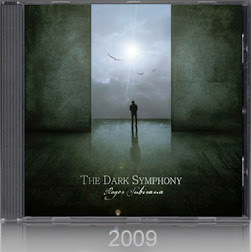This article tells us the problems that the mandaean people have in their refuegee countries.
September 20, 2004
Najieh Ascher Sobbi is free after four years in detention.
Picture:Neil Eliot
During her four years in immigration detention, Najieh would undertake a simple daily ritual. From a pack of tattered playing cards she would deal herself a hand, looking for a sign, an omen, that she and her son, Jafar, would be released.
According to Jafar, 27, the cards never turned up anything positive. No matter how much she shuffled them, the portents were always gloomy. And what they indicated seemed to be true as their bid for asylum was systematically rejected, first by Immigration officials and later by the Refugee Review Tribunal.
Najieh lost hope of a new life in Australia, of joining her sister, Jila, and 13 nephews and nieces in Sydney. Deportation seemed unavoidable. Like so many detainees, she became depressed, her blood pressure rose, and she became increasingly disoriented and had difficulty remembering.
Last month Najieh and Jafar Ascher Sobbi were released from the Baxter detention centre following a high level review ordered by Immigration Minister Amanda Vanstone into the plight of Sabian Mandaeans. They are the last of 160 Mandaean men, women and children to be released from detention after their claims of religious persecution in Iran were finally recognised.
"Even now she is afraid, she still thinks that someone from Immigration will knock on the door and take her back to Baxter," says Jafar. "She loves her freedom, but she cannot quite get used to the fact that she is free. She has been conditioned by years of living in total despair." Speaking through an interpreter, Najieh said: "I spent years trying to keep my spirits up, today I can walk down the street and talk to people. I still cannot believe I am free. I ate fresh fish today for the first time."
Their release represents a remarkable turnaround in refugee policy. When Mandaeans first started arriving in Australia six years ago, their applications for asylum were systemically rejected by the then immigration minister, Philip Ruddock, who insisted that they were discriminated against by the Iranian Islamic Republic but never persecuted. He moved to have them deported along with other Iranians whose applications for asylum had been rejected.
But those moves came to an abrupt halt last year when Justice Cooper of the Federal Court ruled that Mandaeans were persecuted in Iran and that the Refugee Review Tribunal had failed to properly investigate their claims. He found that Mandaeans could not attend university, were refused work in the public service, were denied free access to hospitals and that Mandaean women were sexually abused and not properly protected by police.
For Najieh, it has been a long, painful and distressing journey from the dusty Iranian town of Ahwaz, where followers of the Sabian Mandaean faith - who follow the teachings of John the Baptist - have worked for centuries as goldsmiths, boat builders and carpenters. She fled Ahwaz soon after her husband died, realising that she could no longer make a future for her son.
While she is still adjusting to her freedom and is no longer afraid of persecution by Muslims, she admits to finding her new life confusing. "I cannot get used to talking to people without being afraid of who might be listening," she says.






0 comments:
Post a Comment